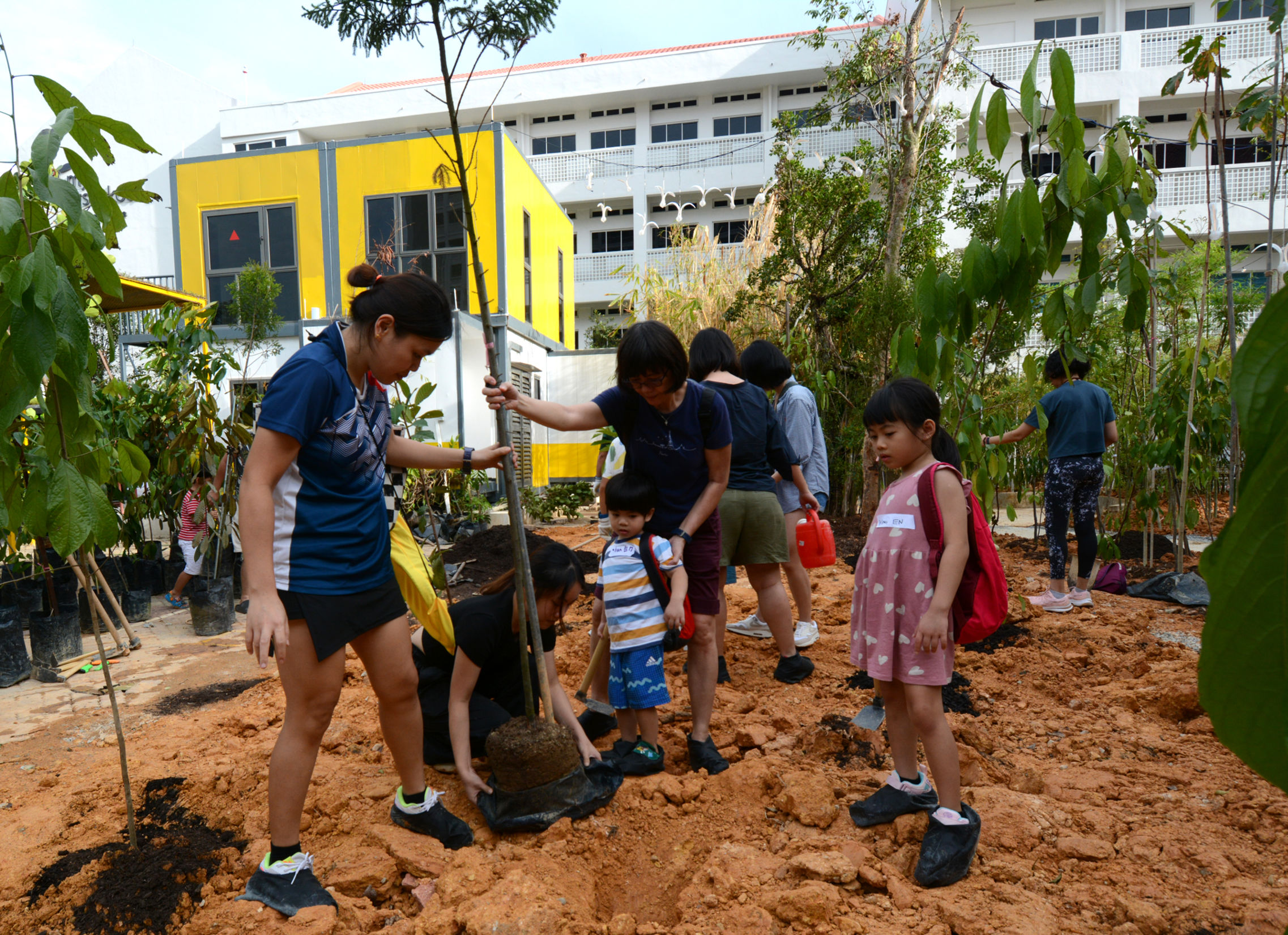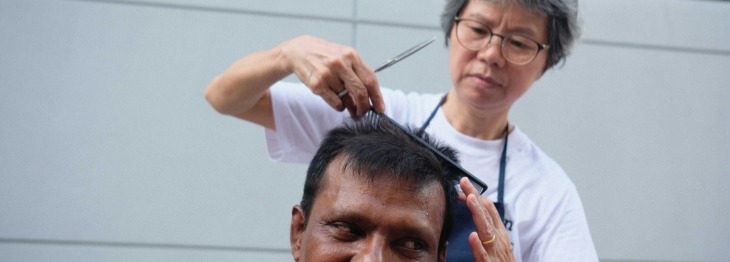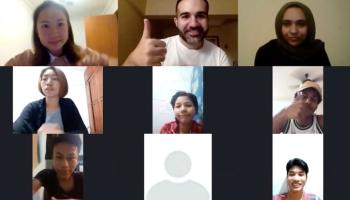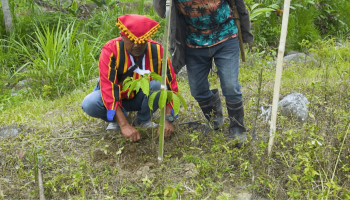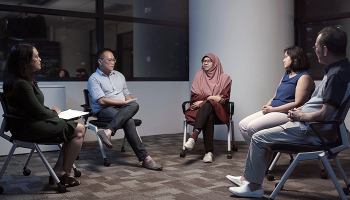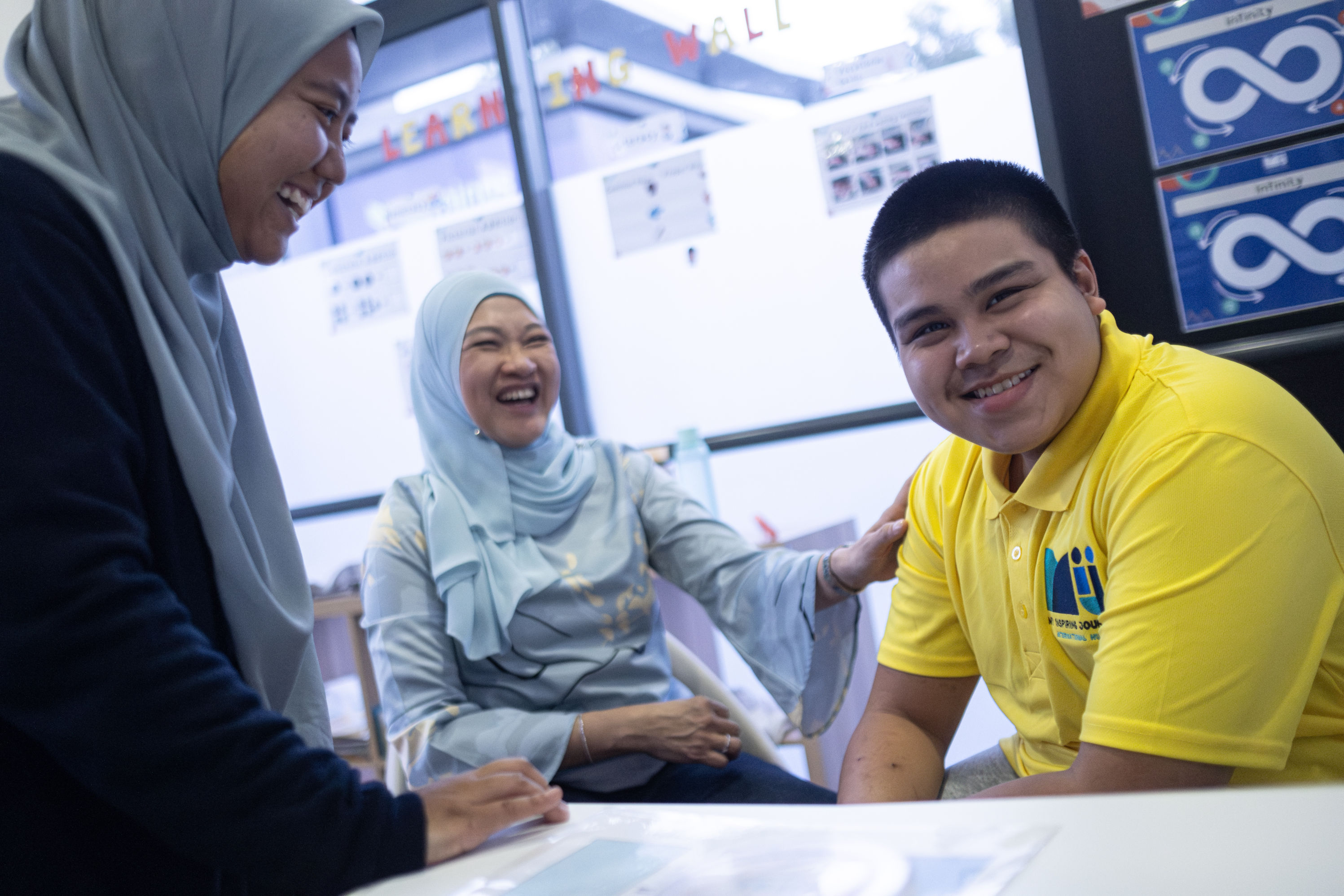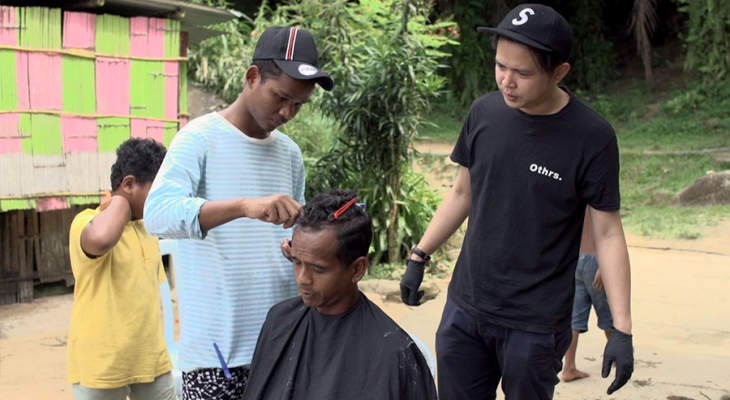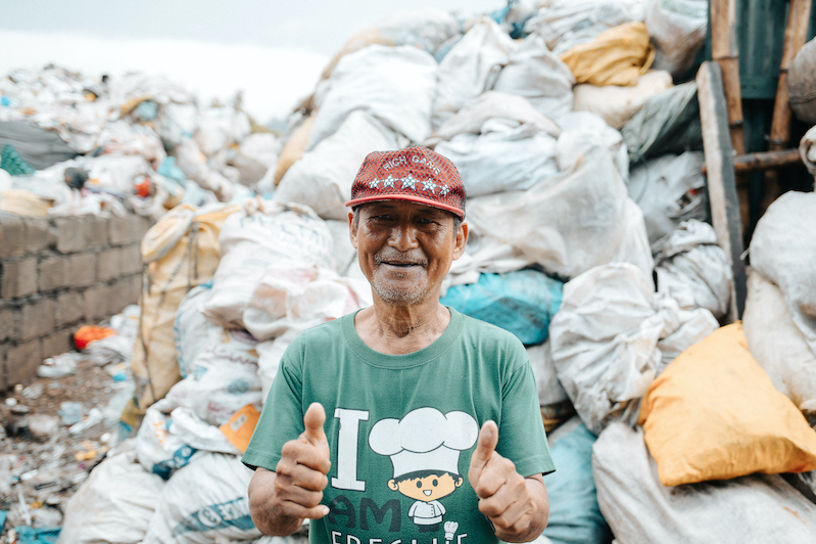A Class Act for Migrant Workers
It is Wednesday morning at an urban farm in Singapore. Curious fingers gently probe the yellow caps of golden oyster mushrooms, as a guide explains the basics of mushroom cultivation.
The attentive visitors are migrant workers on a learning trip, and among them is 35-year-old Alom Mia. For Alom, the mushrooms before him are more than just a novelty or superfood. They represent fresh hope and the opportunity to start anew in his home country.
A former construction worker, the Bangladeshi has been in Singapore for 11 years — and unemployed for more than two.
A workplace accident in 2017 left Alom with a severe knee injury, unable to work and in chronic pain. Living off his savings, loans and welfare support, he despaired over how to support his family and his uncertain future. “If I am not healthy, what am I going to do after returning to Bangladesh?” he laments.
Amidst his troubles, a lifeline materialised in the form of SDI (Social Development Initiative) Academy. Founded in 2013, SDI is a social enterprise offering affordable education and livelihood skills to marginalised communities such as low-wage migrant workers. With non profit HealthServe sponsoring the fees, Alom attended SDI’s entrepreneurship course, which includes learning trips such as the urban farm visit to help them develop new skills.
Fast-forward eight weeks later, and Alom’s outlook is considerably sunnier. Armed with a business idea and the knowledge to put his plan into action, his newfound confidence reflects his hope for a better tomorrow.
“[SDI Academy] taught me where to start, how to start, how to be successful,” Alom says. “Before that I was scared.
“I will go back to Bangladesh, and start a mushroom [culture] business.”
Alom is not alone in despairing over his prospects after years of toiling in Singapore. According to SDI founder, CEO and Singaporean Sazzad Hossain, migrant workers spend an average of eight to 10 years working in Singapore. “They don’t know how to plan their career...they don’t have a plan when they might be sent back home,” he notes.
Business know-how is a powerful tool to free workers from career stagnation, and diminished prospects in their home countries where rural unemployment rates can be high.
“If we could actually train them with business skills, we can reduce or minimise the risk and help save their hard-earned money to get them to the next stage,” Sazzad says.
A BOY, A BENCH, AND A MISSION
This is how the journey to help people like Alom began: with a boy giving informal lessons at a neighbourhood park bench to migrant workers, who lived in dormitories near his home.
As the friendships grew, Sazzad began to understand their daily challenges — struggles that mirrored his own when he relocated from Bangladesh to Singapore with his family.
Barely able to speak or write English, the 11-year-old who loved playing cricket with his friends back in Bangladesh felt isolated and alone. When he finally gained admission to a primary school, he had to drop two grades.
“If a privileged person who is here with his parents, is having so much trouble because of the language barrier, what about the migrant workers who face constant problems and struggles at the workplace?” Sazzad says.
“They can’t understand the safety instructions at the workplace, and they don’t even understand a lot of the contracts they sign. So they are very prone to exploitation.”
Empathising deeply with the workers’ plight, Sazzad’s vision soon outgrew free English lessons for just a few.
At age 19, he cobbled together S$600 (US$440) from his savings to rent a space, create teaching materials, and print a small batch of a textbook he wrote himself.
SDI Academy was born.
BREAKING BARRIERS, BUILDING BRIDGES
SDI’s first lesson saw 134 eager students turn up. Today, the academy has trained more than 7,500 students, delivering over 200,000 hours of lessons. Students are charged a nominal fee of S$3.50 (about US$3) per hour to foster ownership and commitment.
Making up over 15 per cent of the total population, there are close to one million low-wage migrant workers in Singapore. Earning as little as S$18 (US$13) a day after employer deductions for levies and housing, the financial burden of attending courses can be considerable. To ease this, flexible payment schemes, subsidies and scholarships are also available at SDI.
But the work doesn’t end with uplifting the migrant community through education and skills. A key part of SDI’s mission also includes lowering the barriers separating migrants and locals.
“Migrant workers live at the outskirts of Singapore society. They live in dormitories that are far away from the main cities,” says Sazzad. “And that’s where volunteers come into play.”
Volunteers help facilitate group discussions at English classes, allowing students to practise their English with native speakers from different races. They also organise events for migrant workers to mingle with local communities, helping them become a part of society by reducing stigma and building friendships organically.
For volunteer Christy Yip, overcoming her preconceived notions of foreign workers proved the biggest challenge. As she laughs and banters with one of SDI’s students, it’s clear that her perceptions have changed.
“Migrant workers being foreigners, I felt that they were strangers and didn’t see the need to approach them,” Christy shares. “When you start volunteering here, you watch these students go from having dreams to actually turning them into reality.”
Nazrul Alam, a former SDI student, says the classes “transformed my life”. “There was a time, whereby my English was too bad, so when I spoke to people they actually [could] not understand what I’m talking about,” he recalls.
Like Sazzad, Nazrul arrived in Singapore with no grasp of English. His first memory of the city is being stranded overnight at Changi Airport for 14 hours, with only the little food his compatriots had brought — and no way of asking for directions or help.
Now Nazrul is not only understood, but comfortably conversant with the locals — who are floored by his fluency. “I say I’m from Bangladesh. [And they reply], oh, how come your English is so good?” he shares.
Beginning as a manual labourer, Nazrul went from strength to strength: completing his English courses, finishing his diploma, and recently earning his degree. He is now employed as a safety officer. No simple feat, as foreign workers work almost seven days a work — so taking the time and energy to attend classes is a remarkable commitment.
“It’s very good to see someone who barely completed his O-Levels back home, come to a country like Singapore, and have that kind of drive and motivation,” beams Sazzad. “We’re very, very proud of him. He’s an inspiration for everyone.”
Nazrul now mentors group sessions at SDI’s English classes. Paying it forward, his journey has now come full circle.
“We shall transform obstacles into opportunity,” Nazrul declares with conviction. “If you want to learn, there will always be a way.”
SDI Academy founder Sazzad Hossain is an alumnus of Singapore International Foundation’s Young Social Entrepreneurs programme. Through mentorships, study visits, and opportunities to pitch for funding, the programme nurtures social entrepreneurs of different nationalities, to drive positive change for the world.
This International Migrants Day, we honour the contributions, sacrifices and rights of low-wage migrant workers as they toil behind the scenes. Explore more of their stories here, and find out how you can support the dedicated communities giving back to them.
LET’S TALK ABOUT IT:
What more can we do to help first-time foreign workers and members of the migrant community feel welcome in society, despite language and physical barriers?
About SDI Academy
Contributors
Director, Camera & Editor
Writer
Executive Producer



